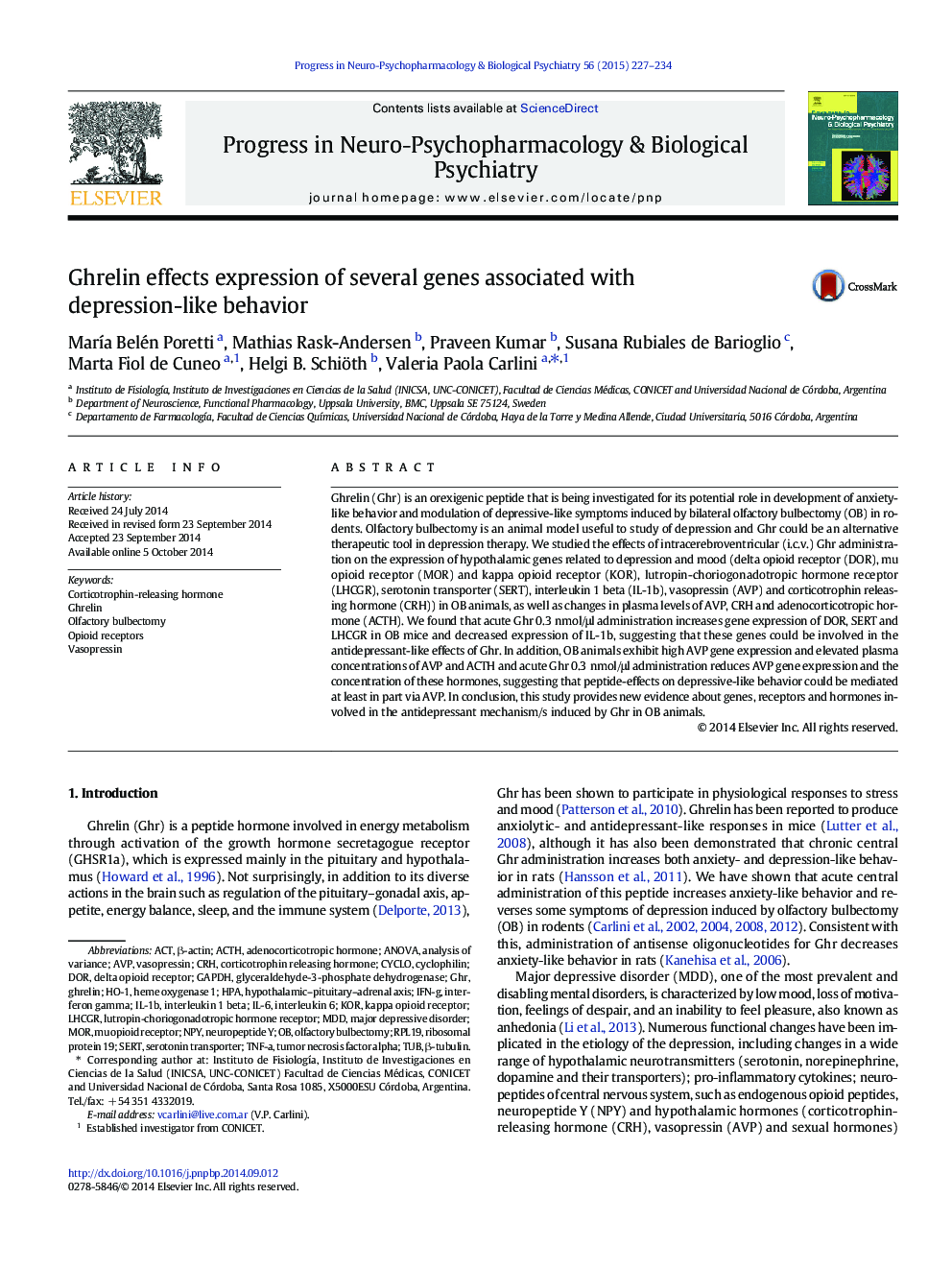| Article ID | Journal | Published Year | Pages | File Type |
|---|---|---|---|---|
| 2564817 | Progress in Neuro-Psychopharmacology and Biological Psychiatry | 2015 | 8 Pages |
•Acute Ghr administration increases DOR, SERT and LHCGR expression in OB mice.•Ghr 0.3 nmol/μl administration reduces IL-1b up-regulation induced by OB.•Ghr 0.3 nmol/μl reduces AVP expression and AVP plasma concentration in OB mice.
Ghrelin (Ghr) is an orexigenic peptide that is being investigated for its potential role in development of anxiety-like behavior and modulation of depressive-like symptoms induced by bilateral olfactory bulbectomy (OB) in rodents. Olfactory bulbectomy is an animal model useful to study of depression and Ghr could be an alternative therapeutic tool in depression therapy. We studied the effects of intracerebroventricular (i.c.v.) Ghr administration on the expression of hypothalamic genes related to depression and mood (delta opioid receptor (DOR), mu opioid receptor (MOR) and kappa opioid receptor (KOR), lutropin-choriogonadotropic hormone receptor (LHCGR), serotonin transporter (SERT), interleukin 1 beta (IL-1b), vasopressin (AVP) and corticotrophin releasing hormone (CRH)) in OB animals, as well as changes in plasma levels of AVP, CRH and adenocorticotropic hormone (ACTH). We found that acute Ghr 0.3 nmol/μl administration increases gene expression of DOR, SERT and LHCGR in OB mice and decreased expression of IL-1b, suggesting that these genes could be involved in the antidepressant-like effects of Ghr. In addition, OB animals exhibit high AVP gene expression and elevated plasma concentrations of AVP and ACTH and acute Ghr 0.3 nmol/μl administration reduces AVP gene expression and the concentration of these hormones, suggesting that peptide-effects on depressive-like behavior could be mediated at least in part via AVP. In conclusion, this study provides new evidence about genes, receptors and hormones involved in the antidepressant mechanism/s induced by Ghr in OB animals.
Graphical abstractFigure optionsDownload full-size imageDownload as PowerPoint slide
